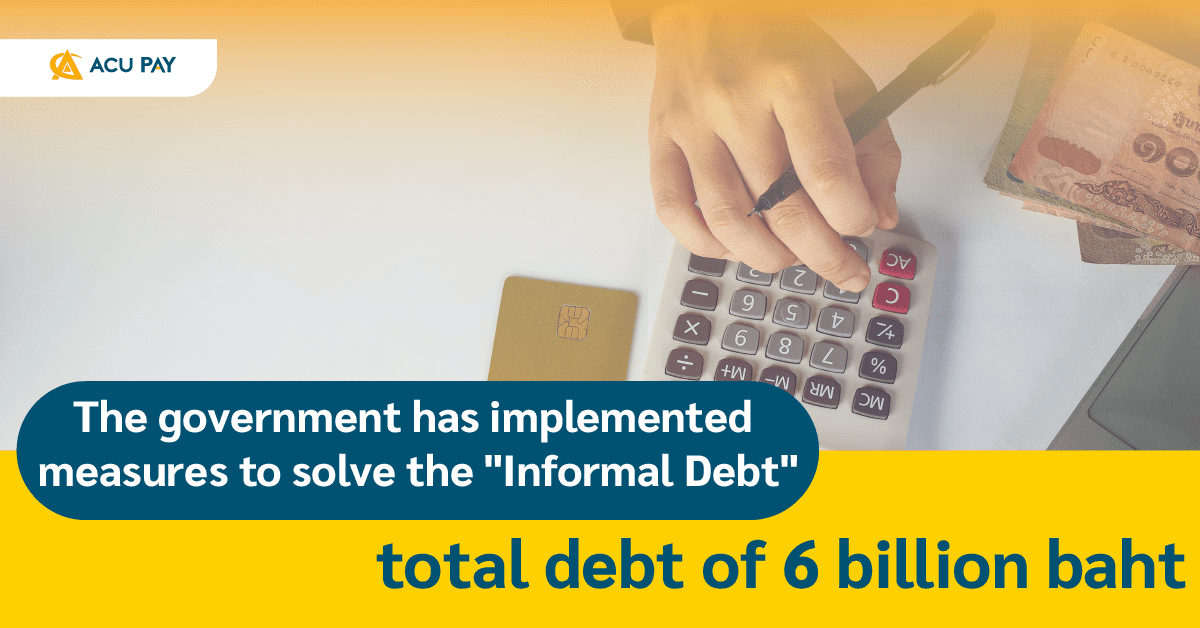

Srettha Thavisin, the Prime minister, said that informal debt is the problem that affects people who are the important fundamental of the economic systems and causes them to face the vulnerability that comes from debt is never going to end, they can’t even dream, close many opportunities for further expansion, and cannot grow to their full potential, causing a domino effect in all sectors.
The government receives a lot of help to solve these debt problems from the administration which is close to people, and the police who help in supervising and implementing the law to work together and fix both debt problems and a delicate community relationship.
The government will play an important role in the mediation of both creditors and debtors in a fair manner, from the beginning of the process to the closing of debt, contracts that are often not fair under the law, unfair interest rates, and violent procedures in debt collection. The contract must be arranged fairly and legally.
On 17 December 2023, according to the data of the Office of Investigation and Legal Affairs Bureau, Department of Provincial Administration at 3.30 p.m., the latest informal debt registration was worth 5,851.294 million baht, and 98,667 cases have been registered, 87,561 cases were registered online and 11,106 cases were registered at the Informal Debt Resolution Center, including the amount of creditors of 69,093.
Top 5 Most Registered Areas/Province are
Top 5 Least Registered Areas/Province are
People who haven’t registered can register both online at https://debt.dopa.go.th or walk-in at District Offices all over Thailand. For more information, please call the Dhamrongdham Center HotLine at 1567 24 hours a day or the village headman, or community leader in the area between 1 December 2023 to 29 February 2024.
Apart from informal debt, the government’s bailout program covers a variety of groups, such as suspension of farmers’ debt, student debts, Teachers’ debts, civil servants’ debts, credit card debts, and auto hire purchase liability
However, the government stated that all of the above debt solutions are only a matter of urgency for all debtors. In the long run, problems at the structural level must be addressed.
For example, proper and fair credit service, appropriate consumer protection measures, and prevention of over-debt problems. Giving out loans will consider other information than credit history such as the history of water bills or electricity bills of debtors, which will help people access loans more easily.
To encourage savings and credit union cooperatives to report credit information to NCB so that all lenders can assess their debtors’ debt repayment ability and manage preference rights in cutting their salary fairly to all parties for appropriate debt repayment to the creditors.